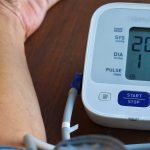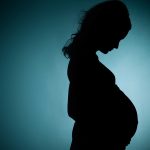Alcohol consumption can prevent you from losing weight and may even lead to weight gain.
Drinking alcohol affects weight loss in several ways. Some of these issues are caused by heavy drinking (more than one drink per day for women or two for men), but even moderate drinking can keep you from reaching weight loss goals.
Drinking Alcohol Can Cause Poor Sleep
Alcohol intake interferes with healthy sleep cycles. Drinking before bed can cause you to go into a deep sleep sooner than you should, which disrupts sleep cycles later in the night.
Alcohol use can also decrease testosterone levels, and low testosterone can lead to lower quality sleep.
Poor sleep is linked to weight gain, though research continues as to why exactly this is. One factor may be that you have less energy, so you’re less likely to move around and exercise. You may even make less healthy food choices because you’re too tired to be mindful.
You’re More Likely To Eat Unhealthy Foods While Drinking
Drinking alcohol lowers your blood sugar, which makes you more hungry. If you drink on an empty stomach, it’s absorbed quickly, which can also make you want to eat more.
On top of that, alcohol use affects your judgment, making you more likely to choose food on impulse—because it sounds good—rather than making a healthier choice.
After binge drinking (four or more drinks in one sitting for women, five for men), many people eat heavy, greasy foods to soak up the alcohol and prevent a hangover. These types of foods are high in calories and lacking in nutritional value.
Regularly overeating and choosing unhealthy foods leads to weight gain and raises the risk of obesity.
Alcohol Gives You Empty Calories
While simply consuming fewer calories isn’t an effective way to lose weight, increasing your calorie intake can cause weight gain.
Alcohol calories don’t make you feel full like food does, so you still need to eat just as much. Plus, you don’t get any nutrition from alcohol, hence the term “empty calories.”
The National Institute of Health reports these calorie counts for popular alcoholic beverages:
- Regular beer (12 oz bottle): 153 calories
- Light beer (12 oz bottle): 103 calories
- Red wine (5 oz glass): 125 calories
- White wine (5 oz glass): 121 calories
- Gin, rum, vodka, whiskey, or tequila (1.5 oz shot): 97 calories
It’s not just about extra calories, either. You can get unhealthy (“bad”) calories from mixers that are high in sugar. There are 143 calories in a mojito, 168 calories in a small margarita, and a whopping 490 calories in a pina colada.
Drinking Makes You Less Likely To Exercise
Alcohol is a central nervous system depressant, so it slows down your heart rate and breathing. In relaxation mode, you have less energy and less motivation to exercise. If you drink enough, you’ll have less coordination too.
You’re probably more likely to sit on the couch than go for a run after drinking.
Exercise is a great tool for weight loss, and it also helps reduce stress. Alcohol’s calming effect can take the edge off stress—at least at first—so you may not feel like you need the exercise as much. Less exercise allows more bad calories to stay in your body and turn into fat.
Alcohol Use Interferes With Digestion
When you drink alcohol, it’s quickly converted to energy. As a result, more of the food you eat at the same time may be turned into fat and stored in your body rather than used as energy.
Alcohol also makes it difficult for your body to absorb nutrients. Drinking is hard on the gastrointestinal (GI) tract, so nutrients aren’t broken down and distributed as efficiently. This problem can lead to malnutrition and weight loss in heavy drinkers.
Alcohol Affects Your Liver
Your liver processes alcohol and gets it out of your body. It also converts carbohydrates and fats into energy, regulates your blood sugar levels, and gets rid of waste and toxins.
When you drink heavily, it damages your liver. Alcohol addiction often leads to alcoholic liver disease, which consists of three levels of liver damage caused by chronic alcohol consumption.
Generally, the more you drink, the worse shape your liver will be in. If your liver can’t do its job, you’re more likely to gain weight and have less energy.
Alcohol Addiction & Weight Loss
People who have an alcohol addiction prioritize alcohol. They gain many calories from drinking and are likely to make unhealthy food and lifestyle choices. This can make it difficult for them to maintain a healthy weight.
While heavy drinking is linked to weight loss if you’re malnourished, it can also lead to weight gain if you indulge in high-fat, high-sugar foods and don’t exercise.
Chronic alcohol consumption can increase depression, which may decrease your motivation to make positive lifestyle changes.
If you’re struggling with alcohol addiction and are unable to cut back or stop drinking despite knowing how it affects weight loss, now is the time to ask for help.
Our compassionate specialists at Northeast Addiction Treatment Center are always here to answer your questions about alcohol addiction and treatment options. Reach out to us and start your recovery today.
Alcohol Addiction Treatment Options
-
Outpatient Drug Rehab for Addiction Treatment
Taking advantage of outpatient rehab can help a person overcome the substance abuse lifestyle, while gaining access to group counseling, individual therapy and classes. People in recovery can learn skills to help manage stress...
-
12 Step Program for Addiction Treatment
-
Substance Abuse Group Therapy
-
Dual Diagnosis Treatment
-
Evidence Based Treatment (EBT)
Sources
- Johns Hopkins — The Digestive Process: The Liver and Its Many Functions
- National Institute on Alcohol Abuse and Alcoholism — Alcohol and the Male Reproductive System
- National Institute on Alcohol Abuse and Alcoholism — Alcohol’s Role in Gastrointestinal Tract Disorders
- Oxford Academic — The Association of Testosterone Levels with Overall Sleep Quality, Sleep Architecture, and Sleep-Disordered Breathing
- Rethinking Drinking — Alcohol calorie calculator
- Sleep Foundation — Alcohol and Sleep
- Sleep Foundation — Weight Loss and Sleep
Written by
Northeast Addition Editorial Team
©2024 Northeast Addition Center | All Rights Reserved
This page does not provide medical advice.





